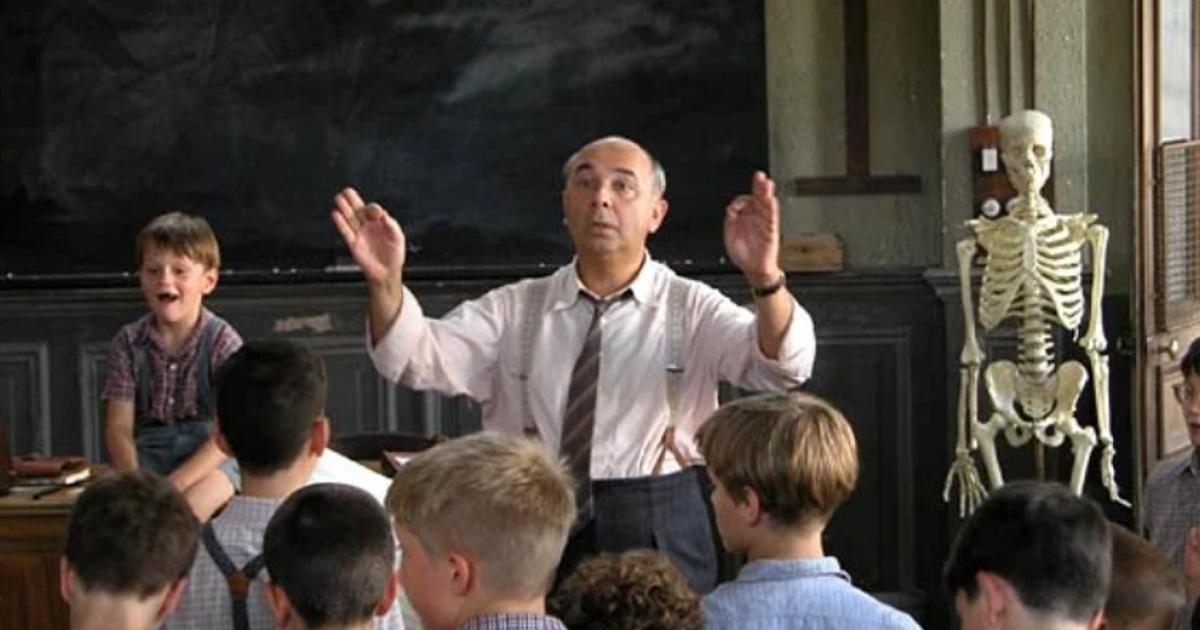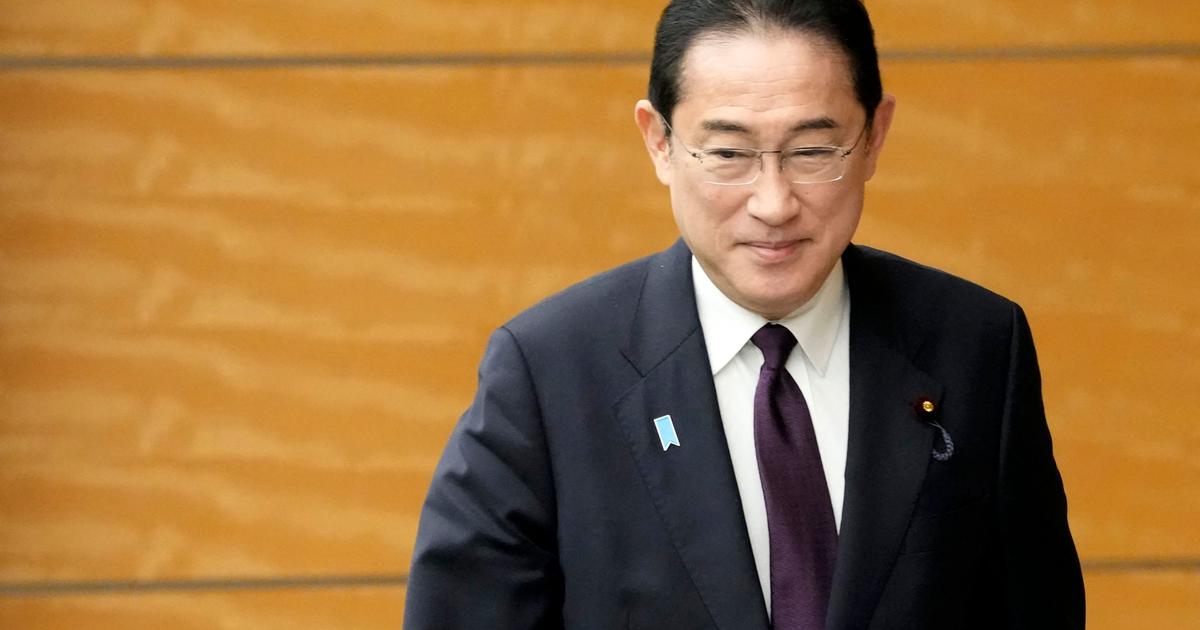Global society
all articles
How do students learn worldwide - and with what results? This question is of concern to scientists, but increasingly also to parents who are concerned about the future of their children in a globalized world.
Successful learning against school stress, this consideration drives mothers and fathers everywhere. The Chinese parents Han Wei, 39, and Li Jinpeng, 40, are also very concerned about this. With their 9-year-old son Li Minghan, they live in Qingdao, a well-developed city with a broad middle class on China's east coast.
The international Pisa educational comparison tests students in four Chinese-language systems: in Taiwan, Hong Kong, Macau and in several major cities in mainland China. In the most recent study, all four produced above-average learning outcomes - and a below-average number of students who report a high level of life satisfaction.
How does the Li family view the Chinese education system?
Private
Mother Han Wei, son Li Minghan and father Li Jinpeng
Father Li Jinpeng is a software engineer and runs a small tech company. Mother Han Wei studied accounting and is a housewife. They met in Dublin, where they lived for many years. Her son was born in Ireland and started school there.
The small family returned to China in 2016. "As a first generation immigrant, it is difficult to be accepted, even if the Irish are very nice - the cultures, the backgrounds are just too different," Li Jinpeng explains the decision. "I followed his suggestion," says Han Wei.
Li Jinpeng spent the first two years in China trying to build a programming school and lived off his savings. Then he joined as a partner in the company of an acquaintance, which he runs today as CEO and has 40 employees. In 2019 he founded a second company of his own.
Even though they are happy with their life in Qingdao - that the Chinese school system is the best for their son, both parents doubt. Here they describe why.
Mother Han Wei:
"The upper level in China is a waste of time"
"In Dublin, Minghan attended St. Louis Infants School, a kind of kindergarten, for two years. First and foremost, the children play there, but they also learn a little bit of science, simple arithmetic and reading. He was able to do this in every class in his class best. The teacher in Ireland always said to me: 'Oh, Minghan is a great boy, he is particularly intelligent.' I was proud of him.
But when we went back to China, everything changed. It was suddenly difficult for him at school. Teacher called me every day and there were always complaints.
At first we didn't understand what the problem was: Minghan was used to dealing with Europe. At school in Ireland, children do not push or wrangle. Chinese children do that. You don't mean it bad, that's just the culture.
Minghan was too much. After an argument he once said to a classmate: 'Look me in the eye and apologize!' That's not how it works here. In such situations he got angry and then there was trouble. It took two years for him to settle in. The pressure was tough during this time, I was really depressed.
imago images
Elementary school students in Jinan, China (archive picture)
Minghan is now in 4th grade, he's going to a private school here in Qingdao. There are fewer children in a class, only 25, in public schools there are around 40. School starts at eight in the morning and ends at 4.15 p.m. After school, he does one or two hours of homework, and extra study units are added during the examination times.
The children come from families with whom it is sometimes easier to deal with. For this we pay 35,000 yuan tuition fees a year, plus another 5,000 yuan for lunch, uniform and administration (the equivalent of a total of 5100 euros ). This is a common price in Qingdao.
Our son is still a little bit different from the other kids in his class. His father encourages him to question everything. So he keeps asking: why? However, the Chinese education system definitely does not promote such an attitude.
Therefore, when he turns 15, we want to send him to a private school abroad. We have no choice: The upper level in China is geared towards the final exams, which make you a buffalo machine. Jinpeng and I both had to go through there. A waste of time, to be honest.
We think of London. This is my favorite city, we were there for the last time on vacation in 2015. There are good universities in London and the international students mix with each other. If Minghan goes to London and we can afford it, I'll probably come with you. If he were older, I would have him done, but not as a teenager. "
Father Li Jinpeng:
"The competition is getting tougher"
"Many Chinese families send their children to tutor, we don't. Most tutors train young brains to know answers - not to develop a sense of research. I can't do anything with that. Education is not a fast food, but a slowly prepared dish ,
It is more important to me that Minghan has a free and curious mind than that he is the best in school. I would prefer that he believes that he knows nothing. I want to educate him like that.
Because if someone thinks he doesn't know anything, he'll want to know everything. And so life will be interesting, and it will also spark interest in the people around him. He should get to know the joy of exploring everything and he should know the doubt. He will be happy in such a life.
That's why I ask Minghan questions every day. When we watch science videos on YouTube, I say, for example: Why are they doing this experiment in this way? Do you have to do it that way, or is there another way? I want to open his mind.
Getty Images
Students in Dongguan, China (archive picture)
Always confronted with questions, he will get into the habit of questioning himself - and I assume others too. He also doesn't have a lot of toys. So we come up with all sorts of games together. In my view, creativity is a very rare gift. And it is a key qualification to survive.
We have no idea what this society will look like. However, we know that natural resources are being used up. More and more people live in the world. Of course, that means competition will be tougher and survival more difficult. So you can't just follow others. You have to be more creative than the others. And to be creative, you need to know how to play.
Other families drive their children to higher education and grades because they think they are the best survivors. But I think that the mind of a highly educated person is not very adaptable. It is immobile like a rock. In an environment that is changing rapidly, such people cannot cope. They can work like slaves. But not like a gentleman. "
This contribution is part of the Global Society project, for which our reporters report from four continents. The project is long-term and is supported by the Bill & Melinda Gates Foundation.
What is the Global Society project?
Reporters from Asia, Africa, Latin America and Europe will report under the title Global Society - about injustices in a globalized world, sociopolitical challenges and sustainable development. The reports, analyzes, photo series, videos and podcasts appear in the SPIEGEL policy department. The project is long-term and has been supported by the Bill & Melinda Gates Foundation (BMGF) for over three years.
Is the journalistic content independent of the foundation?
Yes. The editorial content is created by the Gates Foundation without influence.
Do other media have similar projects?
Yes. Major European media such as "The Guardian" and "El País" have developed similar sections with "Global Development" and "Planeta Futuro" on their news pages with the support of the Gates Foundation.
Have there already been similar projects at SPIEGEL ONLINE?
In recent years, SPIEGEL ONLINE has already implemented two projects with the European Journalism Center (EJC) and the support of the Bill & Melinda Gates Foundation: The "Expedition Tomorrow" about global sustainability goals and the journalistic refugee project "The New Arrivals" several award-winning multimedia reports on migration and flight have emerged.
Where can I find all publications on global society?
The pieces can be found at SPIEGEL ONLINE on the topic page Global Society.



/cloudfront-eu-central-1.images.arcpublishing.com/prisa/HEDL2EH5ZFDPDOL7RYY65YOJQA.jpg)





